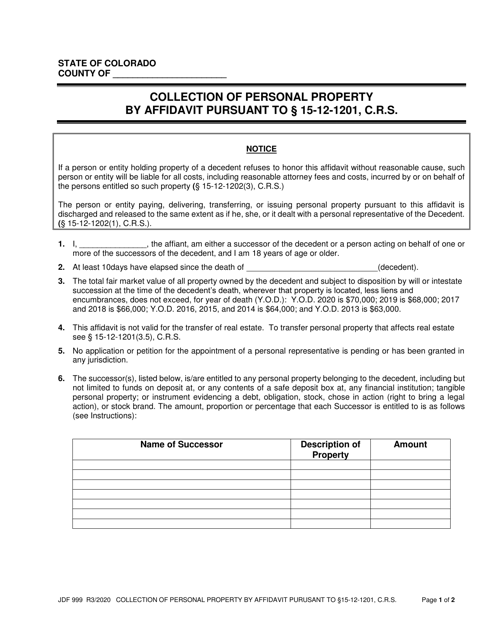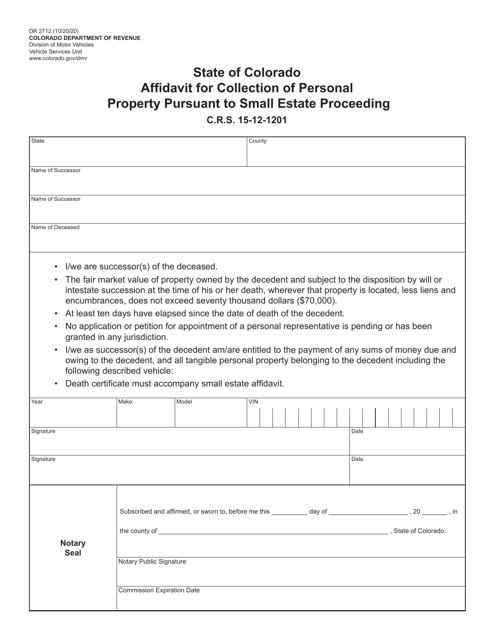Free Colorado Small Estate Affidavit Forms and Templates
Colorado Small Estate Affidavit Form: What Is It?
A Colorado Small Estate Affidavit is a formal instrument that allows the heir of an estate owner to claim the latter's estate if it was small enough to make tedious probate proceedings unreasonable. In case the person died without leaving a will and their assets do not exceed a certain amount, you and other heirs have the right to access the assets, including funds, by preparing a document elaborating on the exact contents of the estate and distributing the property amongst yourselves. This form can be completed by a close relative of the person that passed away or the appointed executor of the estate for the individuals that are supposed to receive different portions of the assets.
Colorado Small Estate Affidavit Types
- Form JDF 999, Collection of Personal Property by Affidavit Pursuant to 15-12-1201, C.R.S. This is the main document heirs of people whose assets did not exceed the maximum amount prescribed by the state should draft to be able to come into possession of their inheritance. Note that this form does not have to be filed with any courts or authorities, you do not need to notify anyone but heirs of the property about its existence either;
- Form DR 2712, Affidavit for Collection of Personal Property Pursuant to Small Estate Proceeding. Fill out this supplemental statement if the estate owner had any motor vehicles you want to transfer to yourself or other heirs - make sure you follow the general rules that guide any claimant, describe the vehicle you want to obtain, and sign the papers in front of a notary public.
How to File a Small Estate Affidavit in Colorado?
Here is how you should prepare a Colorado Small Estate Affidavit Form:
- Ensure you check the state regulations regarding the settlement of small estates . You must wait for ten days before formalizing the affidavit, the estate including all the liens and other financial burdens cannot exceed the amount the local laws have established for the estate owner's year of death (the maximum amount is $70.000 now), and the document is to be notarized.
- Fill out the affidavit to transfer the assets . The Colorado Small Estate Affidavit instructions are as follows: write down the name of the county and your own name, identify the estate owner, confirm you have adhered to all the rules that govern the estate settlement, provide names of the legal heirs and specify who is entitled to receive various assets from the estate, indicate the names of representatives who will get access to the property in question acting in the name of different heirs and describe the assets. It is important to settle all the outstanding claims and handle the expenses before you certify there are no debts in the deceased's name.
- Bring the affidavit to the notary public and sign and date it in their presence . They will put a notary seal under your signature after verifying your identity and the authenticity of the document. It is advised to get several notarized copies of the affidavit.
- Once the document is formalized, you have the right to use it when dealing with any individual or entity that holds the assets of the deceased estate owner - just present the affidavit claiming the property you plan to receive.
Documents:
2
This form is used for the collection of personal property through an affidavit in the state of Colorado, in accordance with the Colorado Revised Statutes section 15-12-1201.
This form is used for individuals in Colorado to request the collection of personal property through a small estate proceeding.


